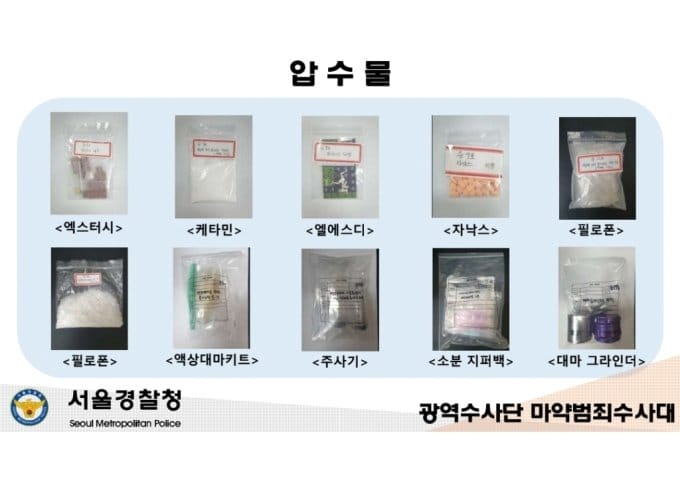South Korean Police Arrest 452 People on Crypto-powered Drug Trafficking Charges

South Korean police continue to wage “war” on crypto-powered drug trafficking, with officers in the capital Seoul making 452 arrests from June 2022 to December 2023.
Per the media outlet Money Today, police arrested three suspected drug dealers. Officers also charged 445 buyers and four illegal “cryptoasset trading platform operators.”
South Korean Police in Uphill Struggle Against Crypto-powered Drug Crime?
Police released data showing that their investigations date back from 2018 to the end of 2023.
The nation is struggling with what politicians have called an “epidemic” of youth crypto-powered drug trading.
Officers said that 90% of the people they arrested were aged between 20 and 39, with five teenagers also charged.
Police teams around the country have made crypto-powered drug trafficking-related arrests in the past.
But this marks the first time officers have succeeded in shutting down a suspected illegal crypto exchange run by narcotics-related gangs.
A police spokesperson said that 146 of the suspects had prior criminal records. The spokesperson added that the majority (60%) of the deals involved marijuana.
Over 23% of the trades involved methamphetamine (also known as crystal meth). Other deals involved drugs like ecstasy (MDMA), synthetic marijuana, and ketamine.
The teenage suspects reportedly told police that they were able to find dealers via social media broadcasts and internet posts.
Cryptonews.com was able to see scores of what appeared to be Korean-language advertisements for drug dealers who claimed to be able to “deliver” narcotics “nationwide” on X (Twitter) and Telegram channels.
Police released images of some of the items they had seized during their raids.

Crypto Monitoring Tools Helped Us Catch Criminals, Say Police
Nam Sung-shin, the head of the First Drug Crime Investigation Department at the Seoul Metropolitan Police Agency, briefed journalists on the arrests on February 28.
Nam explained that officers used crypto and blockchain monitoring tools to identify suspects.
The department chief said tracing the “cryptoassets sent to the sellers’ wallet addresses” had paid dividends.
Using these means enabled officers to track down suspects and “arrest them in large numbers.” Nam said:
“Many people think that if they use the dark web or certain chat apps or social media platforms, their anonymity will be guaranteed. They think police officers will not be able to track them. However, investigative personnel with extensive investigative experience are constantly on the lookout for drug offenders.”
South Korean police said they had charged the four suspected “operators of the virtual asset trading agency” with violations of the Specific Financial Information Act.
The act requires all crypto exchanges and wallet operators to obtain operating licenses from the regulatory Financial Intelligence Unit.
Thus far, only five domestic crypto exchanges, all part of an association that calls itself DAXA, have received the necessary permits required to enable KRW-crypto trading.
South Korean companies that have not seen growth in a long time risk being dropped from the stock exchange, the nation’s financial watchdog says https://t.co/sIea8ELh2S
— Bloomberg (@business) February 28, 2024
The same exchanges last year joined forces with regulators in a bid to crack down on “unlicensed” and “unregistered” crypto trading platforms.
Police in the city of Daegu said in November 2023 that they had raided a “drug trafficking organization” that used crypto as a payment tool. Officers said they arrested 48 people in the raids.
The city’s police agency metropolitan investigation unit said 44 of the group were connected to a suspected “overseas narcotics sales organization.”




